The Bharatiya Janata Party (BJP) took a bold step in the 2024 Lok Sabha elections, targeting southern states for electoral gains. However, the outcome revealed a mixed bag of results, prompting the party to rethink its strategies, focus on grassroots engagement, and reassess alliance formations for a stronger presence in the region.
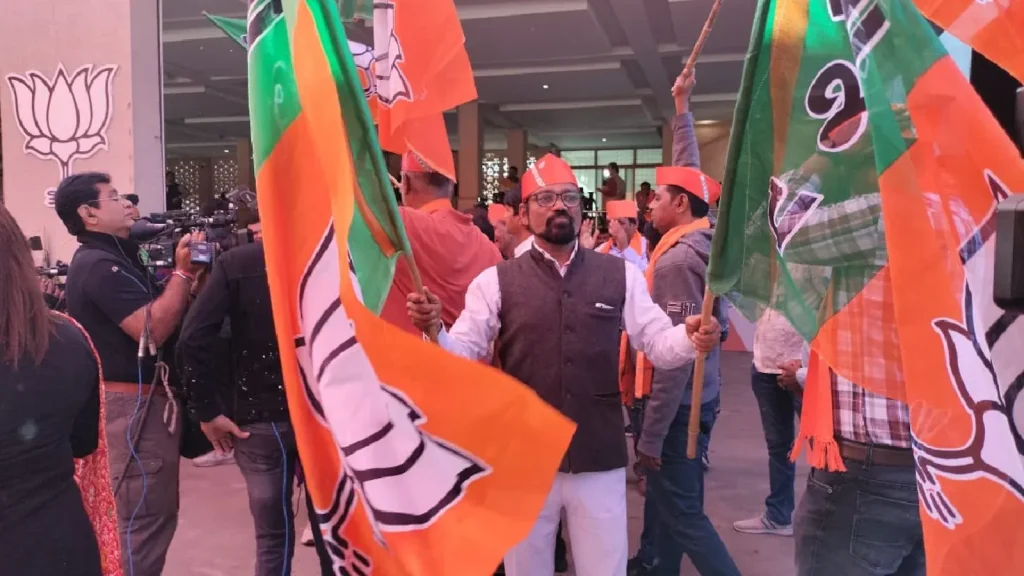
Tamil Nadu: Modi’s Hope and the Reality Check
Prime Minister Narendra Modi’s ambitious aspirations for Tamil Nadu’s support in the 2024 Lok Sabha elections were palpable through his concerted efforts. Frequent visits, including a notable 45-hour meditation session at the Vivekananda Rock Memorial, underscored his dedicated push into the southern terrain. Despite these endeavours, the BJP faced a stark reality on June 4 when it failed to secure even a single seat out of the 39 in Tamil Nadu, shattering Modi’s aspirations and the party’s ambitious narrative of “Ab Ki Baar, 400 Paar.”
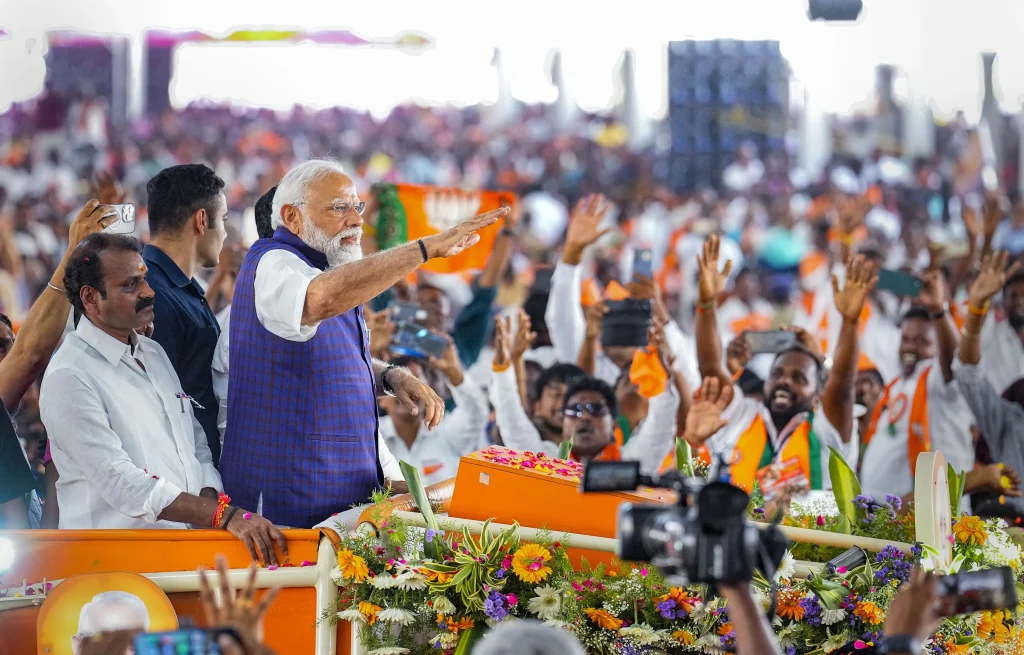
The BJP’s extensive campaign in Tamil Nadu, marked by cultural initiatives like the Sengol and the Kashi-Tamil Sangamam initiative, aimed to deeply penetrate the southern political landscape. However, despite these efforts, the party’s electoral success remained elusive. While Prime Minister Modi rallied support for the party and its star candidate, K Annamalai, who contested from Coimbatore, the BJP’s performance in Tamil Nadu fell short of expectations. The DMK-Congress alliance’s emphasis on federalism and their portrayal of the BJP as a threat to minority and Dalit communities resonated strongly with the electorate, overshadowing the BJP’s counter-narratives on corruption allegations and other issues.
Kerala: Breaking Barriers Amidst Challenges
Contrary to its setbacks in Tamil Nadu, the BJP made unexpected strides in Kerala, particularly in Thrissur, marking a significant milestone for the party. Rajeev Chandrasekhar’s promising leads in Thiruvananthapuram posed a formidable challenge to incumbent Congress MP Shashi Tharoor. However, Tharoor’s resurgence reclaimed his position as the leading candidate, showcasing the resilience of traditional political powers in the state.
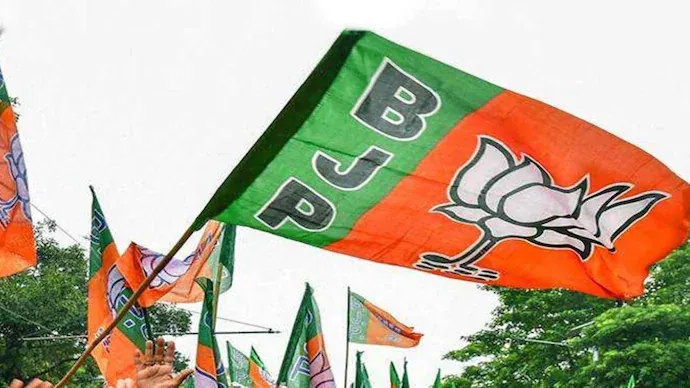
The BJP’s strategy in Kerala included engaging directly with Christian leaders and positioning Christian candidates in key constituencies to reshape its electoral appeal. State leaders argued that traditional political powers, namely the Left Democratic Front (LDF) and the United Democratic Front (UDF), had taken minority communities for granted. Despite these efforts, entrenched resistance rooted in Kerala’s secular ethos posed formidable challenges, reflecting the deep-seated resistance the BJP faces in the state.
Karnataka: Alliance Dynamics and Electoral Complexities
In Karnataka, the BJP’s alliance with JD(S) aimed to broaden its support base but fell short of expectations. Challenges in transferring votes between the parties and shifts in JD(S)’s stance hindered success. The election results underscored the intricacies of coalition politics and signalled the need for strategic reassessment in the state.
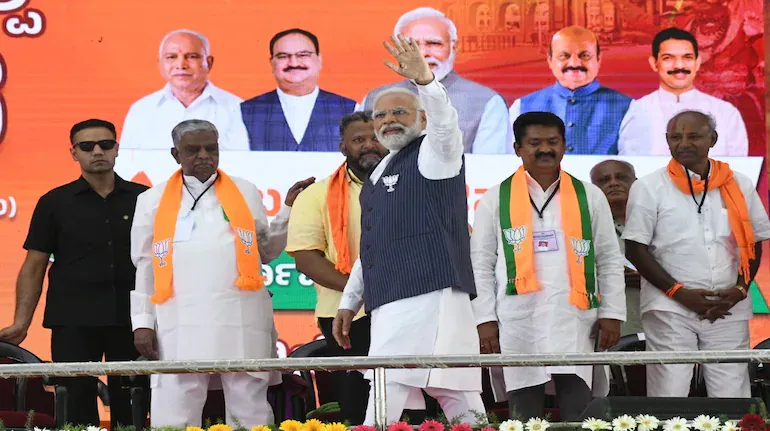
The BJP’s setbacks in Karnataka highlighted the complexities of coalition politics. Despite Prime Minister Narendra Modi’s enduring popularity and the recent construction of the Ayodhya Ram temple, which was expected to boost support, the BJP’s inability to replicate its 2019 success indicated a need to reassess its strategies in the state.
Andhra Pradesh: Naidu’s Revival and Alliance Triumph
In Andhra Pradesh, the BJP’s alliance with TDP and Jana Sena under the NDA banner led to a resounding victory, significantly weakening the ruling YSRCP. Nara Chandrababu Naidu’s resilience and strategic positioning played a pivotal role, marking a resurgence in his political stature. The alliance’s strategic manoeuvres, coupled with anti-incumbency sentiments, worked in their favour, securing a notable electoral impact.
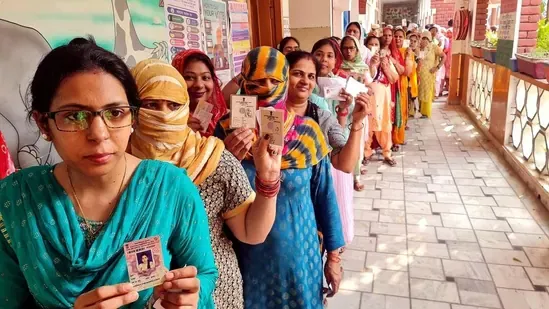
Naidu’s victory was hard-earned, despite facing ridicule from the YSR Congress and spending 53 days in jail last year. His remarkable performance significantly set back his rival, Y.S. Jagan Mohan Reddy, and the YSRCP. The alliance’s strategic calculations and support from various communities played a crucial role in their electoral triumph.
Telangana: BJP’s Incremental Gains Amidst Shifting Dynamics
In Telangana, the BJP’s improved performance reflected a shift in the state’s political landscape. The decline in vote shares for the ruling TRS party and strategic realignments contributed to the BJP’s electoral gains. Congress also made strides, challenging the dominant narrative. The BJP aims to leverage its successes to consolidate its position and compete vigorously in upcoming local polls.
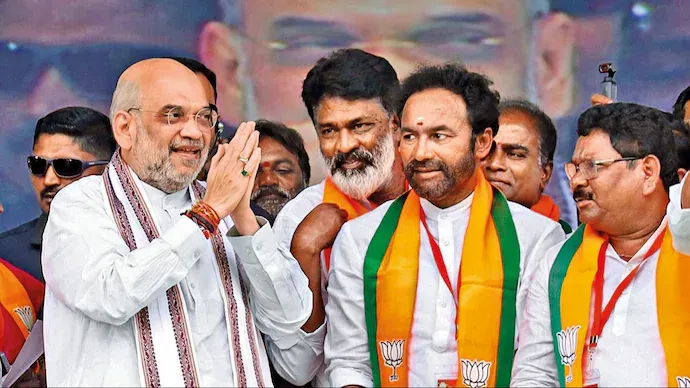
Reflections and Future Directions
As the dust settles on the 2024 Lok Sabha elections, it becomes evident that the BJP’s foray into southern politics yielded a mixed bag of outcomes. While successes in certain states underscore the party’s potential, setbacks highlight the complexities and challenges inherent in southern politics. Moving forward, recalibrated strategies, deeper grassroots engagement, and strategic alliance formations will be imperative for the BJP to solidify its presence and realize its electoral ambitions in the southern region.
